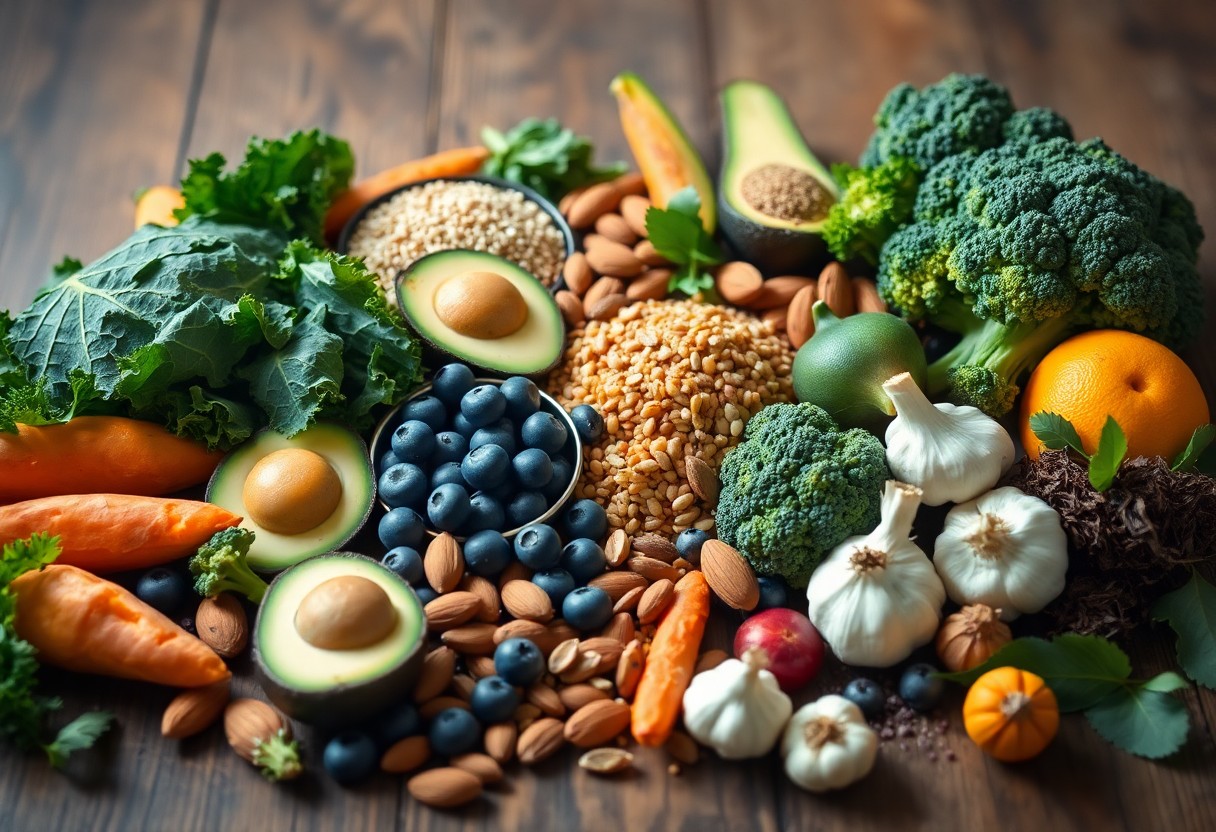Health & Society
More than 30 years of difference in life expectancy highlights health inequalities

The study of the World Health Organization (WHO) reveals that they can be responsible for a Spectacular reduction in life expectancy in rich and poor countries.
For example, People living in the country with the highest life expectancy will live on average 33 years more than those born in the country with the lowest life expectancy.
An unequal world
“Our world is uneven. Where we were born, grow, live, work and age considerably influence our health and well-being, “said Director General Tedros Adhanom Ghebreyesus.
Health inequalities are closely linked to the degrees of social disadvantage and the levels of discrimination.
“” Health follows a social gradient by which the area in which people live more disadvantaged, the more their income is lowWho said.
Inequalities are particularly exacerbated in populations faced with discrimination and marginalization, such as indigenous peoples, who have lower expectations of life than their non -Aboriginal counterparts.
This is the case in high -income and low -income countries.
Key targets at risk
The study is the first to be published since 2008, when the WHO Social Health Determinants of Health Declines published its final reporting objectives for 2040 to reduce gaps between and within countries in life expectancy, childhood and maternal mortality.
It shows that these objectives are likely to be missed, and despite a rarity of data, there is sufficient evidence to show that health inequalities have often expanded.
For example, children born in poor countries are 13 times more likely to die before their fifth anniversary than in richer countries.
In addition, modeling shows that the life of nearly two million children per year could be saved by filling the gap and improving equity between the poorest and richest populations of the population in low and average income countries.
In addition, although maternal mortality has decreased by 40% between the 2000s and 2023, the majority of deaths, 94%, still occur in low and lower income countries.
Appeal to action
Who calls for collective action to deal with economic inequalities and invest in social infrastructure and universal public services.
The agency also recommends other stages, in particular on the survival of structural discrimination and the determinants and impacts of conflicts, emergencies and forced migration.
Originally published at Almouwatin.com
Health & Society
A Growing Crisis: The Rise of Ketamine Use Among Britain’s Youth

In the neon-lit corners of London’s underground rave scene, a quiet crisis is unfolding. While cocaine and ecstasy remain staples of Britain’s nightlife, a more insidious trend is gaining traction: ketamine, once relegated to the fringes of the drug world, is surging in popularity among young people. Public health officials, clinicians, and law enforcement agencies warn that its use is escalating into an epidemic with severe consequences for physical and mental health, straining already overburdened treatment systems.
The Data: A Stark Rise in Use
Official figures from the Crime Survey for England and Wales (CSEW), published in January 2024 by the Office for National Statistics (ONS), reveal a troubling trajectory. Ketamine use among 16- to 24-year-olds has nearly doubled since 2019, with 2.1% of respondents reporting use in the past year—a figure experts believe underestimates the true scale. Urban areas tell an even grimmer story. A 2023 study in The Lancet Regional Health—Europe found that in London, ketamine accounted for 12% of all new drug treatment admissions in 2022, up from 4% in 2018. The European Monitoring Centre for Drugs and Drug Addiction (EMCDDA) now ranks the UK as having the highest prevalence of ketamine use in Western Europe, surpassing France and Germany.
Why Ketamine? Accessibility and Misconceptions
Ketamine’s dual identity—as both a legally prescribed medication and an illicit substance—fuels its accessibility. Originally developed as a veterinary anesthetic, it remains a medically approved painkiller and antidepressant. However, illicit versions, often diverted from veterinary supplies or produced in clandestine labs, have flooded black markets. The National Crime Agency (NCA) seized a record 3.4 tons of ketamine in 2023, a 40% increase from 2021, with much of the supply traced to illegal manufacturing in China and India.
Affordability amplifies its appeal. A gram of ketamine costs as little as £10 ($13) in clubs or online, compared to £30 ($39) for a gram of cocaine. For young people navigating soaring living costs, this price gap is a critical factor. Meanwhile, misconceptions about safety persist. Unlike opioids, ketamine does not suppress breathing, leading many users to underestimate its risks. Yet studies confirm that its long-term effects—though less immediately lethal—can be equally devastating.
Health Consequences: Bladders, Brains, and Mental Health
Chronic ketamine use exacts a severe physical toll. The drug is linked to “ketamine bladder syndrome,” a condition causing painful ulcers, incontinence, and kidney failure. A 2022 review in Nature Reviews Urology found that 20–30% of regular users develop urinary symptoms, with some requiring surgical intervention. Hospitals report a surge in cases: urologists at University College London Hospital note a sharp rise in young patients needing catheters or bladder reconstructions, often in their early 20s.
Mental health risks are equally alarming. Ketamine’s dissociative effects—inducing out-of-body experiences—can trigger psychosis, paranoia, and depression. A 2023 longitudinal study in Psychological Medicine tracked 500 young users over five years and found that 40% developed persistent psychiatric symptoms, with 15% requiring hospitalization. Neurological research underscores that while ketamine does not cause addiction in the traditional sense, it alters the brain’s reward system, creating psychological dependence.
Social Drivers: Isolation, Economic Anxiety, and the Digital Age
The surge in ketamine use intersects with broader societal shifts. Post-pandemic mental health data reveals a crisis among young people, with rising rates of loneliness and anxiety. A 2024 Institute for Public Policy Research (IPPR) report found that 60% of young ketamine users cited loneliness or anxiety as key motivators for use. Economic pressures compound these issues: stagnant wages, housing insecurity, and the gig economy’s instability create fertile ground for escapism.
The digital age further fuels the trend. Online communities on platforms like Reddit and TikTok glamorize ketamine’s hallucinogenic effects, while encrypted apps facilitate discreet purchases. The National Crime Agency notes that encrypted messaging services now dominate ketamine distribution, enabling buyers to bypass traditional street-level dealers.
Policy Paralysis: A Legal Gray Area
Despite the crisis, ketamine remains a Class C drug in the UK, carrying a maximum penalty of two years in prison for possession. Critics argue this classification downplays its harms. Academic analyses, including studies from the University of Kent, highlight that Class C sends a misleading signal about risk. Reclassification to Class B—a move that would increase penalties and unlock additional treatment funding—has been debated but not enacted.
Government efforts to address the issue remain fragmented. A £2 million ($2.6 million) allocation in 2023 aimed to expand ketamine-specific treatment programs, but advocacy groups describe this as insufficient. Waiting times for specialized care often stretch to six months, and many clinics lack staff trained in ketamine-related disorders.
The Road Ahead: A Call for Urgency
The ketamine crisis demands a multifaceted response. Stricter regulation of online sales, expanded mental health services, and public awareness campaigns targeting schools and parents are critical. Research from the University of Exeter stresses the need to destigmatize conversations about ketamine’s risks, particularly among educators and families.
For now, the human cost continues to mount. In Bristol, a 22-year-old student, who requested anonymity, described her three-year ketamine addiction as “a slow-motion car crash.” After losing her university place and developing severe bladder pain, she entered rehab in 2023. “I thought I was invincible,” she said. “But ketamine took everything.”
As Britain grapples with this hidden epidemic, the stakes grow higher with each passing month. Without decisive action, the next generation may pay the price.
Health & Society
10 Essential Herbs For Boosting Your Immune System Naturally

You may seek ways to strengthen your body’s defenses against illness, and exploring natural solutions can be rewarding. In this post, readers will discover ten necessary herbs that can significantly enhance their immune system. He or she might be surprised to learn how these potent plants not only provide health benefits but also offer additional flavor and variety in their daily diet. They can harness the power of nature to promote overall well-being and better immune response.
Key Takeaways:
- Garlic is known for its potent antibacterial and antiviral properties, helping to enhance immune function.
- Elderberry is packed with antioxidants and has been shown to reduce the duration and severity of colds and flu.
- Ginger has anti-inflammatory effects that can support the immune system and help in fighting infections.
- Echinacea is commonly used to prevent colds and improve the immune response when taken at the onset of illness.
- Turmeric contains curcumin, which possesses anti-inflammatory and antioxidant qualities, benefiting overall immune health.
Understanding the Immune System
A healthy immune system is vital for protecting the body against various pathogens, including bacteria, viruses, and parasites. It involves complex interactions between various cells, tissues, and organs that work in harmony to identify and neutralize foreign invaders. Understanding how the immune system operates enables individuals to make informed decisions about enhancing their health and resilience through diet and lifestyle choices.
How the Immune System Works
About the immune system’s functionality, it relies on a sophisticated network of cells such as white blood cells, antibodies, and other biochemical defenses. These components collaborate to identify and eliminate pathogens effectively. Upon encountering a threat, the immune system responds by activating various protective mechanisms, including the proliferation of specialized immune cells and the production of antibodies aimed at neutralizing the invaders.
Importance of a Healthy Immune System
By maintaining a healthy immune system, individuals can effectively ward off infections and illnesses. This system acts as the body’s primary defense mechanism, ensuring that it can combat viral and bacterial threats efficiently. Consequently, a well-functioning immune system can greatly enhance overall well-being and reduce the risk of chronic diseases.
Hence, a strong immune system is vital for maintaining health and vitality. It provides the body with the necessary tools to fight infections and recover from illnesses quickly. An immature or weakened immune response may lead to increased susceptibility to infections, prolonged illness, and the development of serious health conditions. Individuals should prioritize strategies that support their immune health, as it plays a pivotal role in ensuring a long, active life and fostering a robust defense against the ever-present dangers of pathogens.
Top 10 Essential Herbs
Now, people seeking to naturally strengthen their immune system often turn to the power of herbs. These potent plants provide a variety of benefits that can help individuals protect against illness. In this section, he will explore ten crucial herbs that have been recognized for their immune-boosting properties, providing an invaluable addition to anyone’s wellness routine.
Echinacea
After reviewing various herbs, many find that Echinacea stands out for its ability to enhance immune function. This vibrant purple flower has been traditionally used to combat colds and respiratory infections, making it a popular choice for those aiming to support their health.
Elderberry
Below are some benefits of elderberry, which has gained popularity due to its rich antioxidants and antiviral properties. Many studies suggest that elderberry can reduce the duration and severity of cold and flu symptoms, making it a favored option for preventative health during flu season.
For instance, elderberry is loaded with flavonoids, which help fight off pathogens and reduce inflammation. It is often taken in syrup or capsule form, making it an easy addition to daily health routines.
Garlic
Elderberry is another notable herb that offers impressive health benefits, especially in immune enhancement. Garlic has been used for centuries for its medicinal properties, particularly for its antibacterial and antiviral effects.
Further, garlic contains compounds like allicin that may boost immune cell activity, allowing the body to fend off infections more effectively. Incorporating garlic into meals or taking it as a supplement can significantly contribute to overall health.
Ginger
Ginger is another powerhouse herb well-known for its anti-inflammatory and antioxidant properties. This spicy root is excellent for supporting the immune system, especially during cold seasons.
In fact, ginger has been shown to stimulate immune responses while also reducing throat inflammation, making it a soothing remedy in tea or fresh grated form when feeling under the weather.
Turmeric
Garlic also deserves recognition for its role in enhancing immune response. Turmeric, with its active compound curcumin, is lauded for its potent anti-inflammatory and antioxidant properties, making it crucial for overall health.
Considering its numerous benefits, turmeric not only helps combat inflammation in the body but also increases the immune system’s effectiveness, which is why many individuals incorporate it into their daily diet through cooking and beverages.
Ashwagandha
Before concluding this section, it is important to highlight ashwagandha, an adaptogenic herb that aids the body in managing stress. This ancient herb is recognized for its ability to enhance resilience against illness by regulating the body’s stress response.
It is often found in supplement form or powder, allowing individuals to easily add it to smoothies and teas. It promotes a healthy immune system while simultaneously benefiting mental clarity and overall well-being.
Oregano
With its strong flavor and aromatic qualities, oregano is another herb celebrated for its immune-boosting abilities. Rich in antioxidants and crucial oils, it is a valuable addition to many dishes.
Essential oils derived from oregano exhibit significant antimicrobial properties, helping to fight off harmful bacteria and viruses. This makes it a popular choice for boosting health, especially during times of illness.
Thyme
For those looking to further boost their immunity, thyme is another excellent herb to consider. It is known for its antiseptic and antimicrobial properties that can assist in warding off infections.
But thyme’s benefits extend beyond its immune support; it also aids digestion and reduces inflammation, making it a well-rounded herb to include in a balanced diet.
Licorice Root
For those seeking to enhance immune function, licorice root offers notable benefits. Known for its anti-inflammatory and antiviral properties, it can help support the body during cold and flu season. Licorice root contains glycyrrhizin, which may inhibit the replication of some viruses, making it a valuable ally for boosting immunity. However, individuals with high blood pressure or certain health conditions should use it cautiously, as excessive consumption can lead to serious side effects.
Holy Basil
To support immune health naturally, holy basil is celebrated for its adaptogenic properties. This herb helps the body cope with stress, which can adversely affect immunity. Rich in antioxidants and possessing anti-inflammatory qualities, it enhances the body’s defense mechanisms. Research suggests that holy basil may improve the function of immune cells, promoting a stronger response to pathogens. Nevertheless, those who are pregnant or on certain medications should consult a healthcare professional before using it.
Ways to Incorporate Herbs into Your Diet
Once again, individuals seeking to enhance their immune system can easily incorporate these beneficial herbs into their daily meals. They may choose to add fresh herbs to salads, blend dried herbs into smoothies, or season dishes with herbal spices. Cooking with herbs not only elevates the flavor profile of their meals but also increases the nutritional value, making it a delicious way to support their health.
Herbal Teas
With a variety of herbs available, herbal teas serve as an excellent medium for boosting one’s immune system. She can steep herbs like echinacea or elderberry to enjoy their healing properties in a warm, soothing beverage. This ritual, whether taken in the morning or evening, allows her to embrace a relaxing moment while nourishing her body.
Supplements
Below, they may consider herbal supplements as an alternative means to include these powerful herbs in their wellness routine. Herbal supplements can come in various forms, such as capsules, powders, or tinctures, and provide concentrated doses of beneficial compounds in a convenient way.
The addition of herbal supplements to one’s daily regimen can significantly impact health. However, it’s vital for individuals to choose high-quality products from reputable sources to avoid any potential contaminants. Consultation with a healthcare professional is also advised, as some herbs may interact with prescribed medications. By ensuring safety and quality, they can harness the positive benefits of supplements to effectively support their immune system.
Potential Side Effects and Considerations
Not all herbs are suitable for everyone, and individuals should be aware of any potential side effects. Some may experience mild reactions, while others could have more serious complications. Consulting with a healthcare professional before adding new herbs to a routine can help mitigate risks and ensure safe use.
Interactions with Medications
Potential interactions can occur when herbs are combined with prescription or over-the-counter medications. Some herbs may enhance or inhibit the effectiveness of medications, leading to unintended consequences. It is vital for individuals to consult with a healthcare provider if they are on medication, as this can help prevent adverse interactions.
Allergic Reactions
Between the active compounds and additives, some individuals may experience allergic reactions to specific herbs. Symptoms can range from mild itching to severe breathing difficulties, which may require immediate medical attention. Being cautious and performing a patch test before using a new herb is advisable.
It is important for individuals to be aware that allergic reactions can sometimes manifest unexpectedly. An individual may have a mild reaction such as skin rash or itchiness, but in more severe instances, they may experience symptoms like swelling of the face, tongue, or throat, and difficulty breathing. Recognizing these symptoms early can be lifesaving. They should always consult with a healthcare provider if they suspect an allergy to any herb.
Lifestyle Factors that Support Immunity
Many individuals overlook the impact of lifestyle factors on their immune system. To enhance immunity, they should consider:
- Healthy nutrition
- Regular exercise
- Sufficient sleep
- Stress management
- Avoiding harmful substances
After integrating these lifestyle choices, she can significantly support her body’s defensive mechanisms.
Nutrition
Before focusing on herbal remedies, it is imperative for her to prioritize a balanced diet rich in vitamins, minerals, and antioxidants. Foods such as fruits, vegetables, nuts, and whole grains can fortify her immune response.
Exercise
Exercise plays a vital role in boosting her immune system. Engaging in regular physical activity helps improve circulation, which supports the efficient operation of immune cells throughout the body.
Immunity benefits when she incorporates moderate aerobic activity or strength training into her routine. These activities not only reduce stress, which can negatively affect immune function, but they also promote better overall health, enabling the body to better combat infections.
Sleep
Around 7-9 hours of quality sleep per night is vital for her overall health and immunity. A lack of sleep can impair the production of cytokines, which are proteins crucial for fighting off infections.
And, establishing a consistent sleep schedule, creating a restful environment, and avoiding caffeine close to bedtime can greatly enhance her sleep quality. Sufficient rest allows the body to recover and strengthens the immune system, making it more effective against potential threats.
Final Words
On the whole, understanding the benefits of these 10 crucial herbs for boosting the immune system can empower individuals to take charge of their health naturally. By incorporating herbs such as echinacea, elderberry, and astragalus into their daily routines, they may enhance their body’s defenses against illness. He, she, or they can utilize these natural remedies alongside a balanced diet and healthy lifestyle to support overall well-being. Ultimately, embracing herbal options can be a valuable addition to their immune health strategy.
FAQ
Q: What are the top 10 herbs recommended for boosting the immune system?
A: The top 10 herbs that can aid in enhancing the immune system include Echinacea, Elderberry, Ashwagandha, Garlic, Ginger, Turmeric, Oregano, Thyme, Astragalus, and Licorice Root. Each of these herbs has unique properties that support immune health.
Q: How does Echinacea support the immune system?
A: Echinacea is known for its ability to help stimulate the immune system. It contains compounds that may increase the production of white blood cells, which are imperative for fighting off infections and diseases. Many people use Echinacea to shorten the duration or severity of colds and other respiratory infections.
Q: Can I consume these herbs in any form, or are there specific methods of preparation?
A: These herbs can be consumed in various forms, including teas, tinctures, capsules, and powders. For example, you can brew Echinacea tea, take elderberry syrup, or add ginger powder to smoothies. The effectiveness may vary depending on the preparation method, so it’s advisable to follow specific guidelines for each herb.
Q: Are there any side effects or interactions to be aware of when using these herbs?
A: While most of these herbs are considered safe for general use, some may cause side effects or interact with medications. For instance, garlic may thin the blood, which can be an issue for those on anticoagulants. Always consult with a healthcare professional before starting any new herbal regimen, especially if you have underlying health conditions or are pregnant or nursing.
Q: How can I incorporate these herbs into my daily routine effectively?
A: There are various ways to incorporate these herbs into your daily life. You can start your day with a cup of ginger tea, add garlic to your meals for flavor and health benefits, or take a daily supplement containing a blend of these herbs. Experimenting with different recipes and forms of these herbs can make it easier to include them in your diet regularly.
Health & Society
Unlocking The Power Of Superfoods – Top 15 Natural Foods For Optimal Health

Over the years, health enthusiasts have discovered the remarkable benefits of superfoods, which are packed with crucial nutrients that can greatly enhance wellbeing. In this article, they will explore the top 15 natural foods recognized for their ability to combat diseases, boost energy levels, and promote overall health. By incorporating these powerhouses into their diets, individuals can unlock a more vibrant and healthier lifestyle, making informed choices about their nutrition and wellness.
Key Takeaways:
- Superfoods are nutrient-rich foods that provide numerous health benefits, including improved immunity and enhanced energy levels.
- Incorporating a variety of superfoods into your diet, such as berries, leafy greens, and nuts, can contribute to better overall health and wellness.
- Many superfoods are high in antioxidants, which help combat oxidative stress and reduce the risk of chronic diseases.
- Consuming superfoods regularly can help support weight management and improve digestion due to their high fiber content.
- By making small changes to your diet and adding superfoods, you can empower your health and vitality over time.
What Are Superfoods?
The term “superfoods” refers to nutrient-rich foods that provide remarkable health benefits. These foods are often packed with vitamins, minerals, antioxidants, and other crucial compounds that contribute to overall wellness. While there is no official definition governing what qualifies as a superfood, they are generally recognized for their high nutritional density and positive impacts on health.
Definition and Characteristics
Besides being nutrient-dense, superfoods often exhibit unique characteristics such as high antioxidant levels, anti-inflammatory properties, and beneficial phytochemicals. These attributes not only support bodily functions but also promote better health outcomes. Individuals seeking to improve their diet typically include these foods due to their overall effectiveness in enhancing well-being.
Nutritional Benefits
Superfoods offer a myriad of nutritional benefits that significantly enhance health and vitality. They often contain high levels of antioxidants, which help combat oxidative stress and reduce the risk of chronic diseases. Additionally, these foods are usually rich in crucial vitamins and minerals, which play a pivotal role in numerous biological processes. In fact, incorporating superfoods into one’s diet can lead to improved heart health, increased energy levels, and a boost in the immune system, making them a highly favorable choice for those committed to optimal health.
Top 15 Superfoods for Optimal Health
Clearly, the world of superfoods is vast, offering a plethora of options that can enhance overall well-being. By incorporating these nutrient-dense foods into their diet, individuals can harness the benefits of nature’s best offerings, contributing to a healthier lifestyle and improved vitality.
Berries
Optimal for health, berries are small but mighty superfoods packed with antioxidants and vitamins. They provide crucial phytochemicals that combat inflammation and support heart health. Rich in fiber and low in calories, they make excellent snacks or additions to smoothies, salads, and cereals.
Leafy Greens
Before venturing into the world of superfoods, leafy greens stand out for their nutrient density. They are abundant in vitamins A, C, K, and minerals like calcium and iron, all of which contribute to a robust immune system and overall health.
Superfoods such as spinach, kale, and Swiss chard are recognized for their detoxifying properties and their ability to support optimal digestion. These greens provide a wealth of antioxidants and are linked to lower risks of chronic diseases, including heart disease and certain cancers.
Nuts and Seeds
Around superfoods, nuts and seeds emerge as bite-sized powerhouses of healthy fats and protein. They are known for their heart-healthy properties and can improve satiety and energy levels when consumed as snacks or toppings in meals.
The diverse varieties of nuts, such as almonds, walnuts, and flaxseeds, offer a range of benefits including nutrients that support brain function, promote skin health, and assist in weight management. Their anti-inflammatory effects also contribute to overall wellness.
Whole Grains
An crucial component of a balanced diet, whole grains like quinoa, brown rice, and oats provide complex carbohydrates and dietary fiber. They help maintain steady energy levels and support digestive health.
Also, whole grains are not only a source of energy but also offer vital nutrients including B vitamins, iron, and magnesium. These nutrients work synergistically to improve metabolism, balance hormones, and reduce the risk of chronic diseases like type 2 diabetes and heart issues.
Fatty Fish
Against the common myths about seafood, fatty fish such as salmon, mackerel, and sardines are exceptionally rich in omega-3 fatty acids. These crucial fats are crucial for brain health and proper functioning of the heart.
In addition, regular consumption of fatty fish has been linked to a decreased risk of heart disease and stroke. The omega-3s found in these fish can help reduce inflammation and may even support mental health by combating symptoms of anxiety and depression.
Legumes
Greens such as beans, lentils, and chickpeas fall into the superfood category due to their high content of protein and fiber. These legumes are excellent plant-based protein sources that can replace meat in a diet.
It’s worth noting that legumes also contribute to improved gut health and can help manage blood sugar levels. Their low glycemic index makes them a suitable choice for those looking to maintain a healthy weight or manage diabetes effectively.
Fermented Foods
About the importance of gut health, fermented foods like yogurt, kimchi, and sauerkraut are vital as they contain probiotics. These beneficial bacteria play a significant role in maintaining a balanced gut microbiome.
For instance, incorporating fermented foods into one’s diet can enhance digestion, boost nutrient absorption, and even support the immune system. Additionally, they have been associated with mood improvement and overall mental well-being, making them a tasty and beneficial choice.
Cruciferous Vegetables
Superfoods such as broccoli, cauliflower, and Brussels sprouts belong to the cruciferous vegetable family. They are well-regarded for their high levels of vitamins, minerals, and unique compounds known to support health.
Nuts and seeds also play a supportive role when paired with cruciferous vegetables, amplifying their benefits. The combination provides a hearty dose of antioxidants and detoxifying elements that may help reduce the risk of cancer and other chronic diseases.
Avocado
Unlike many fruits, avocados are rich in healthy fats, particularly monounsaturated fat, which can support heart health. They are also loaded with fiber, vitamins, and minerals, making them a fantastic addition to any diet. Regular consumption of avocados may help reduce bad cholesterol levels and promote overall wellness, providing crucial nutrients that aid in nutrient absorption.
Sweet Potatoes
With their vibrant color and sweet flavor, sweet potatoes are a powerhouse of nutrition. Packed with antioxidants, they offer substantial amounts of vitamins A, C, and B6, as well as potassium and dietary fiber. Their low glycemic index makes sweet potatoes a smart choice for maintaining stable blood sugar levels, benefiting those looking to incorporate healthy carbohydrates into their meals.
Mushrooms
With numerous varieties available, mushrooms are not only delicious but also incredibly nutritious. They are low in calories, high in fiber, and provide a unique blend of vitamins and minerals, including B vitamins, selenium, and copper.
In addition, mushrooms contain bioactive compounds such as beta-glucans, which may enhance immune function. Certain types, like shiitake and maitake, have been studied for their potential anti-cancer properties. Furthermore, mushrooms can boost energy and support brain health through their high content of ergothioneine, an antioxidant linked to reducing oxidative stress.
Citrus Fruits
With their zesty flavors and vibrant colors, citrus fruits like oranges, lemons, and grapefruits are an excellent source of vitamin C. This crucial nutrient is vital for immune support and promotes healthy skin and connective tissues.
Indeed, citrus fruits also boast flavonoids that can help reduce inflammation and lower blood pressure. Their high water content aids in hydration, while their natural sweetness can satisfy cravings for sugary snacks, making them a versatile and healthy option for snacking and cooking.
Garlic
To harness the benefits of garlic, individuals should consider incorporating it into their daily meals. Garlic is known for its potential to enhance the immune system and has been used in various cultures for its medicinal properties throughout history.
Hence, garlic contains compounds such as allicin, which possess antimicrobial and anti-inflammatory properties. Studies suggest that regular garlic consumption may help lower blood pressure and improve cholesterol levels, contributing to better cardiovascular health.
Green Tea
Before drinking green tea, individuals should be aware of its numerous health benefits. Rich in antioxidants, particularly epigallocatechin gallate (EGCG), green tea has been linked to improved metabolism and enhanced fat burning.
Also, green tea may have a positive impact on brain function and may reduce the risk of neurodegenerative diseases. Regular consumption can support cardiovascular health and even promote longevity due to its high antioxidant content, which can combat harmful free radicals in the body.
Dark Chocolate
Around 70% cocoa content or higher dark chocolate provides a rich source of antioxidants known to improve heart health and enhance blood flow. It is a delightful treat that offers a range of health benefits.
Understanding the intricacies of dark chocolate reveals that it contains flavonoids, particularly catechins, which can lower blood pressure and improve cholesterol levels. Additionally, dark chocolate can elevate mood and provide a feeling of satisfaction, making it a valuable part of a balanced diet when consumed in moderation.
How to Incorporate Superfoods into Your Diet
Now that individuals are aware of the benefits of superfoods, they can easily integrate them into their daily meals for enhanced health. Simple adjustments include adding berries to their morning oatmeal, incorporating leafy greens in smoothies, and using quinoa as a base for salads. They can also explore meals that are rich in omega-3 fats by including fish like salmon or walnuts in their diet. With these incorporate strategies, every meal can be a step toward better health.
Meal Planning Tips
For those looking to maximize their nutrition, planning meals that feature superfoods can be effective. They can follow these helpful tips:
- Plan meals around seasonal produce.
- Incorporate at least one superfood in each meal.
- Batch cook dishes with quinoa or legumes.
- Keep a well-stocked pantry with nuts and seeds.
This will not only simplify meal prep but also ensure they are consuming a wide variety of nutrients.
Recipes Featuring Superfoods
About the integration of superfoods, several delicious recipes can elevate everyday meals to new nutritional heights. From vibrant smoothie bowls topped with chia seeds to hearty salads laden with kale, the possibilities are endless. Staying creative in the kitchen allows individuals to explore diverse flavor profiles while reaping the benefits of superfoods.
To create meals that highlight superfoods, they can experiment with combinations like sweet potato and black beans in a taco filling or use hemp seeds as a garnish for soups. In addition to enhancing taste, incorporating these nutrient-dense ingredients can lead to improved well-being. By engaging with various cooking methods, such as roasting or blending, they can easily introduce superfoods into their culinary repertoire, making healthy eating enjoyable and sustainable.
The Science Behind Superfoods
Keep in mind that the concept of superfoods is grounded in scientific research that explores the unique nutritional profiles and health benefits of these natural foods. Through rigorous studies, they aim to understand how specific nutrients and bioactive compounds can contribute to overall well-being, potentially reducing the risk of chronic diseases and enhancing vitality.
Research and Studies
To explore the claims surrounding superfoods, scientists have conducted numerous research studies that assess their impact on health. These studies analyze different food components, such as antioxidants, vitamins, and minerals, and their role in physiological processes. They yield valuable insights into how these nutrient-rich foods may support immune function, reduce inflammation, and promote longevity.
Potential Health Claims
Superfoods are often associated with numerous health claims, suggesting they can provide extraordinary benefits for the body. However, it is necessary that individuals critically evaluate these claims. At times, marketing may exaggerate benefits without sufficient scientific backing. While many superfoods, such as berries and leafy greens, are shown to boost immunity and provide potent antioxidants, others may lack definitive evidence. Individuals should focus on a balanced diet that incorporates a variety of these foods to achieve maximum health benefits.
Debunking Myths About Superfoods
For many people, superfoods evoke curiosity and confusion, leading to numerous myths that cloud their benefits. This chapter aims to clarify these misconceptions, helping individuals make informed choices about incorporating superfoods into their diets. Awareness of these myths allows them to navigate the overwhelming amount of information surrounding superfoods and focus on what truly contributes to their health and well-being.
Common Misconceptions
Superfoods often receive exaggerated reputations, leading to misconceptions such as the belief that they are a panacea or that consuming just one type can replace a balanced diet. While these nutrient-dense foods provide numerous health benefits, they are not magic solutions that negate the need for a varied and balanced intake of nutrients.
Clarifying Facts
Superfoods, while indeed nutrient-rich, should be viewed as a complement to a well-rounded diet rather than as standalone miracle cures. They can enhance overall wellness but do not replace the importance of other food groups. It is vital for individuals to incorporate a diverse range of foods to ensure they receive the full spectrum of nutrients necessary for optimal health.
Consequently, individuals should focus on integrating various superfoods into their diets alongside other whole foods, rather than overemphasizing a single source. This approach ensures a broader intake of important nutrients while also promoting overall health. Furthermore, relying solely on superfoods without a balanced diet can lead to nutritional deficiencies and undermine health goals. By understanding that superfoods are just one part of a larger nutritional puzzle, individuals can make choices that truly benefit their well-being.
Conclusion
Now that they have explored the benefits of superfoods, individuals can incorporate these top 15 natural foods into their diets for optimal health. By doing so, she can boost energy levels, support immune function, and enhance overall well-being. He may find that these nutrient-dense options not only elevate meals but also contribute to long-term health benefits. Ultimately, they can unlock the power of superfoods and make informed choices towards a healthier lifestyle.
FAQ
Q: What are superfoods and why are they important for health?
A: Superfoods are nutrient-dense foods that provide a range of health benefits, often packed with vitamins, minerals, antioxidants, and other important compounds. Including superfoods in your diet can enhance overall well-being, boost immunity, and help prevent various health issues, making them a valuable addition for optimal health.
Q: How do superfoods differ from regular foods?
A: Superfoods generally contain a higher concentration of nutrients compared to regular foods. While regular foods can provide basic nutrition, superfoods are often rich in antioxidants, healthy fats, and unique phytochemicals that contribute to better health outcomes. This potent nutritional profile is what sets them apart.
Q: Can superfoods help with specific health conditions?
A: Yes, many superfoods are linked to specific health benefits. For instance, berries like blueberries may improve heart health due to their high antioxidant content, while leafy greens like spinach can support bone health with their vitamin K levels. Incorporating varied superfoods into your diet can help manage or mitigate certain health conditions.
Q: How can I incorporate more superfoods into my daily diet?
A: You can easily include superfoods in your meals by adding them to smoothies, salads, and snacks. For example, you might blend kale and avocado into your smoothies, sprinkle chia seeds on yogurt, or make a salad featuring quinoa and various colorful veggies. Strategies such as planning meals around superfoods can enhance their intake seamlessly.
Q: Are there any risks associated with consuming superfoods?
A: Generally, superfoods are safe when consumed as part of a balanced diet. However, excessive consumption of certain superfoods can lead to unwanted side effects. For instance, too much kale can interfere with thyroid function in some individuals, while excessive intake of nuts can lead to weight gain. It’s important to consume these foods in moderation and consult with a healthcare provider if you have specific health concerns.
-

 EU & the World6 days ago
EU & the World6 days agoMichael Bolton’s Kids: Everything To Know About His 3 Adult Daughters
-

 EU & the World6 days ago
EU & the World6 days agoRobert De Niro’s Kids: Meet the Award-Winning Actor’s 7 Children
-

 EU & the World5 days ago
EU & the World5 days agoWho Is Ashley Buchanan? About the Kohl’s CEO Who Was Fired
-

 Politics6 days ago
Politics6 days agoPress release – “Flow” wins 2025 LUX Audience Award
-

 Sports6 days ago
Sports6 days agoReal Madrid, sting on Antonio Rüdiger
-

 Sports6 days ago
Sports6 days agoAlexander Bublik’s curious rant on today’s tennis
-
Travel7 days ago
Travelling to Thailand? Everything you need to know about the new digital entry form
-

 Politics6 days ago
Politics6 days agoNew MSCA Seal of Excellence call open in Poland





















